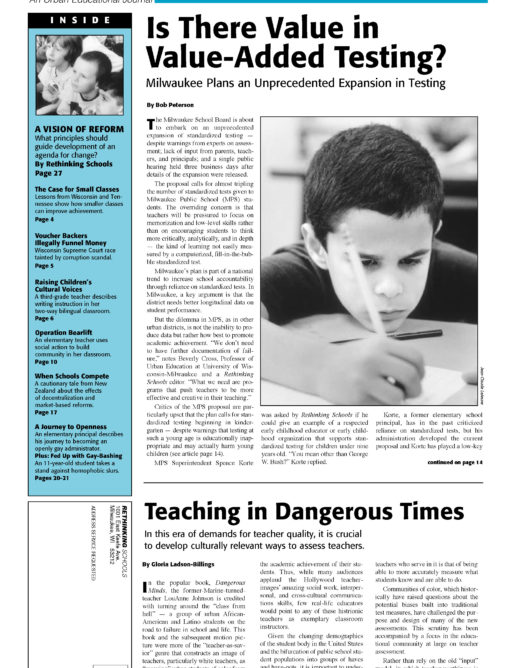Preview of Article:
Teaching In Dangerous Times
In this era of demands for teacher quality, it is crucial to develop culturally relevant ways to assess teachers.
Since the mid-1980s, the nation has seemed fixated with testing its teachers. Predictably, these testing measures have had an adverse impact on the already shrinking pool of African-American teachers. Though none would argue that school districts certify incompetent teachers, those states calling for teachers to be tested typically fail to engage in a process that holds schools and colleges of teacher education responsible for ensuring that their graduates meet minimum standards.
The problem of teachers not passing competency tests seems inconsequential when compared to the larger issue of what these tests reveal about teachers’ ability to teach. For example, all California teachers who have received regular teaching certificates within the past 10 years have passed that state’s teacher competency test. Yet would one argue that all of California’s teachers are good teachers? Creating tests as screens or barriers to admission seems to appease the public outcry for higher standards, even when those standards have no relationship to performance.
The more relevant question might be: How equitable and reliable are teacher assessment measures for ensuring that teachers will be effective in classrooms of urban children of color?
TEACHING CONTEXTS
Many new teacher assessments fail to consider the very different contexts in which teachers find themselves. More pointedly, teachers of color are more likely to find themselves in poor, urban school communities than are white teachers.
The example of one assessment center activity that I personally critiqued describes a case in point.</p

